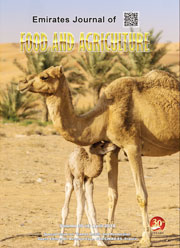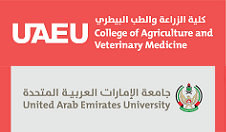BIOLOGICAL ACTIVITY OF SELECTED GREEK MEDICINAL AND AROMATIC PLANTS EXTRACTS ON ALTERNARIA ALTERNATA
DOI:
https://doi.org/10.9755/ejfa.2016-06-618Keywords:
Medicinal and aromatic plants, Biological activity, Alternaria alternataAbstract
In this study, the biological activity of selected Greek medicinal and aromatic plants on the phytopathogenic fungus Alternaria alternata
was investigated. Biological activity was screened on crude aqueous extracts and their aqueous phase (ap-pt) after further extraction
with petroleum ether. All the Lamiaceae species examined were found to enhance significantly the mycelium growth. Melissa officinalis
extracts caused the highest stimulation in mycelium growth, (+109.1%) the ap-pt, and (+51.6%) its crude extract. All ap–pt extracts
stimulated conidia production, but Melissa officinalis caused the highest effect (+349.3%). Crude extracts of Salvia officinalis stimulated
highly conidial production (+65%) whereas Hyssopus. officinalis and Origanum vulgare inhibited conidia production at 33.3% and 50.0%
respectively. The differences in biological activity between crude and ap–pt extracts for each plant species were attributed through the
calculation of correspondent synergism ratios (SR) to the interaction between volatile and water – soluble. Rosmarinic acid, detected as
the most abundant phenolic compound in all extracts analyzed and found to correlate strongly (R= 0.84) with the stimulation effect on
spore production of A. alternata.










 .
. 